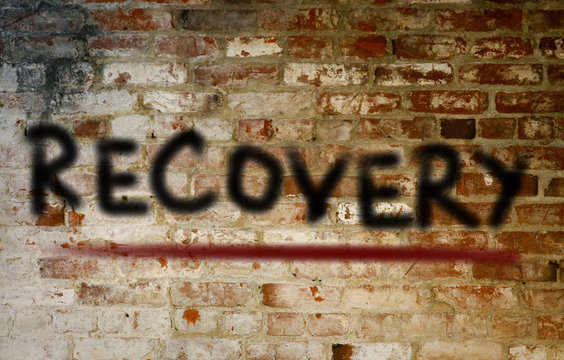Have you ever experienced a traumatic event that still haunts you to this day? Do memories of it often flood your mind, causing anxiety and distress? If so, know that you are not alone. Post-traumatic stress disorder (PTSD) affects millions of people worldwide and can have a debilitating impact on one’s quality of life. Fortunately, there is a solution that may help break free from the grip of trauma: hypnotherapy. we will explore how hypnotherapy can aid in PTSD recovery and provide insight into its effectiveness as a therapeutic tool.

Understanding PTSD: A Brief Overview
PTSD or post-traumatic stress disorder is a mental health condition that can develop after experiencing or witnessing a traumatic event. Symptoms can include flashbacks, nightmares, anxiety, and avoidance behaviors. It can be challenging to manage PTSD, and traditional therapy methods may not work for everyone. However, hypnotherapy for PTSD has gained popularity as an alternative treatment option. It involves using hypnosis to access the subconscious mind and help individuals process and heal from traumatic experiences. Understanding PTSD and its symptoms is crucial in seeking appropriate treatment. If you or someone you know is struggling with PTSD, it’s essential to seek professional help from a qualified hypnotherapist who specializes in trauma recovery.

What is Hypnotherapy and How Can It Help with PTSD?
Hypnotherapy for PTSD is a form of therapy that uses hypnosis to help individuals recover from trauma. During a session, the therapist guides the patient into a trance-like state where they are more susceptible to suggestion and relaxation techniques. This allows patients to access their subconscious mind and work through any repressed emotions or memories related to their trauma.
Hypnotherapy can be particularly effective in treating PTSD because it bypasses the conscious mind’s defense mechanisms, allowing patients to confront painful past experiences without feeling overwhelmed or triggered. Additionally, hypnosis has been shown to promote feelings of calmness and control, which can be especially helpful for those who struggle with anxiety or panic attacks as a result of their trauma.
While hypnotherapy should never be used as a standalone treatment for PTSD, it can complement other forms of therapy such as Cognitive Behavioral Therapy (CBT) or Eye Movement Desensitization and Reprocessing (EMDR). By incorporating hypnotherapy for PTSD into an overall treatment plan, patients may find relief from symptoms such as flashbacks, nightmares, and avoidance behaviors.

The Science behind Hypnotherapy for Trauma Recovery
Neuroplasticity is the key concept behind hypnotherapy for trauma recovery. The brain has the ability to reorganize itself and form new neural connections, even after experiencing traumatic events. Hypnotherapy helps to access the subconscious mind, where traumatic memories are stored, and reframe them in a more positive light. This process involves reprogramming the brain’s response to triggers that may cause anxiety or panic attacks. By accessing the subconscious mind, hypnotherapy can also help individuals identify and address underlying emotional issues that may be contributing to their PTSD symptoms. Research has shown that hypnotherapy can be an effective treatment option for PTSD, with some studies reporting up to 80% success rates. It is important to note that hypnotherapy should always be conducted by a licensed and experienced therapist who specializes in trauma recovery.

Common Misconceptions about Hypnotherapy for PTSD Treatment
Hypnotherapy has been a controversial topic for many years, and there are several misconceptions surrounding its use in treating PTSD. One of the most common misconceptions is that hypnotherapy involves mind control or manipulation. However, this is far from the truth. Hypnotherapy is a collaborative process between the therapist and patient, where the patient remains in control at all times.
Another misconception is that hypnotherapy can erase memories of traumatic events. While hypnotherapy can help patients process traumatic memories in a more manageable way, it cannot erase them completely. Additionally, some people believe that hypnotherapy is not a legitimate form of therapy and lacks scientific evidence to support its effectiveness. However, numerous studies have shown that hypnotherapy can be an effective treatment for PTSD.
It’s important to address these misconceptions before starting hypnotherapy treatment for PTSD. By understanding what hypnotherapy is and how it works, patients can make informed decisions about their mental health care.
Benefits of Choosing Hypnotherapy over Traditional Therapy Methods for PTSD
Hypnotherapy for PTSD offers several benefits over traditional therapy methods. Firstly, it requires fewer sessions to achieve long-lasting results as it works directly with the subconscious mind. This means that patients don’t have to spend months or even years in talk therapy sessions before seeing any improvement. Additionally, hypnotherapy is a non-invasive treatment option without any side effects.
Furthermore, hypnotherapy can target specific triggers and symptoms of PTSD more effectively than other forms of therapy because it allows access to the subconscious mind where traumatic memories are stored. By tackling these underlying issues head-on, hypnotherapy can help individuals overcome their trauma and move forward in life without being held back by anxiety, depression or other PTSD symptoms.
However, It’s crucial to note that hypnotherapy isn’t a standalone method and should complement traditional therapies such as cognitive-behavioral therapy (CBT). Consult your healthcare provider or mental health expert before starting your healing journey through Hypnosis Therapy for PTSD!

Finding the Right Therapist: Questions to Ask Before Starting Your Treatment
Understanding the Qualifications and Experience of Potential Therapists
When it comes to choosing a hypnotherapist for PTSD treatment, it’s crucial to verify their qualifications and experience. Look for someone who has specific training in hypnotherapy for PTSD and is certified by a reputable organization. Additionally, consider the therapist’s professional background, length of time practicing hypnosis, and success rate with similar cases. It’s also okay to ask about their approach to treating trauma and what techniques they use during sessions. Choosing the right therapist can make all the difference in your recovery journey so take your time researching potential candidates before making a decision.
Questions to Ask a Potential Therapist Before Starting Your Treatment
When seeking the services of a hypnotherapist for PTSD, it’s important to ask questions that will help you find the best fit. Asking about their experience specifically with hypnotherapy for PTSD can give you an idea of how knowledgeable and skilled they are in this area. You may also want to inquire about their overall level of experience as a therapist.
Other important questions might include asking what kind of techniques they use during therapy sessions, whether or not they have worked with clients who have experienced similar traumas, and what their success rate has been with those clients. Finally, don’t forget to ask about pricing and insurance options so that there are no surprises down the road.
What to Expect from Hypnotherapy Sessions for PTSD Recovery
During hypnotherapy sessions for PTSD recovery, you can expect to be guided into a state of relaxation where your mind is more open to suggestion. Trauma-focused therapy will help you work through the root cause of your PTSD and reframe negative thought patterns. You may also learn techniques such as self-hypnosis or grounding exercises that can be used outside of therapy sessions to reduce anxiety and stress. It’s important to find a therapist who specializes in trauma treatment and has experience with hypnotherapy. They should also provide a safe and comfortable environment, explain the process thoroughly, and address any concerns or questions you may have about the treatment plan.
Steps Involved in a Typical Hypnotherapy Session for PTSD
Hypnotherapy session for PTSD typically involves the therapist guiding the patient into a relaxed state of mind. This is done by using a combination of deep breathing exercises, visualization techniques, and positive affirmations. Once the patient is in a trance-like state, the therapist will work with them to identify and address any underlying issues related to their trauma. This may involve exploring past memories or experiences that have contributed to their PTSD symptoms. The therapist will then use various techniques to help the patient reframe these experiences in a more positive light and develop coping mechanisms for dealing with triggers. The length and frequency of hypnotherapy sessions can vary depending on the severity of the patient’s symptoms and their individual needs. It’s important to note that hypnotherapy should always be conducted by a licensed professional who specializes in treating PTSD.
Real-Life Success Stories: How Patients Have Benefited from Using Hypnotherapy to Treat their PTSD
Many individuals suffering from PTSD have found relief through hypnotherapy. Hypnotherapy for PTSD has been known to help patients overcome debilitating symptoms including anxiety, nightmares, and intrusive thoughts. One success story is that of a veteran who had severe PTSD after serving in Iraq. After trying traditional therapy methods with little improvement, he decided to try hypnotherapy. During his sessions, he was able to access and process traumatic memories in a safe environment which helped him better cope with his symptoms outside of therapy. Another patient shared her experience using hypnosis as part of her treatment plan for sexual assault trauma. She reported feeling more empowered as she regained control over her emotions and reactions triggered by past events.
Overall, these real-life success stories demonstrate the effectiveness of hypnotherapy for PTSD as a complementary or alternative form of treatment compared to traditional talk-therapy approaches alone.

Self-Care Tips Post-Treatment: Maintaining Mental Health after Recovering from Trauma
After undergoing hypnotherapy for PTSD, it is essential to prioritize self-care in order to maintain mental health and prevent triggers from resurfacing. Here are some tips to help you stay on track post-treatment:
- Practice relaxation techniques such as deep breathing, meditation, or yoga.
- Stay connected with support groups or close friends and family who understand your experiences.
- Avoid any substances that may trigger negative emotions or memories.
- Set boundaries when necessary and don’t be afraid to say “no” if something doesn’t feel right.
- Take care of yourself physically by eating well, exercising regularly, and getting enough rest.
- Keep a journal to document progress and reflect on any lingering emotions or triggers
- Consider continued therapy sessions with your hypnotherapist or finding another form of ongoing therapy.
Remember that healing from trauma is a journey, but seeking help through hypnotherapy can lead to positive changes in both the mind and body over time with consistent effort towards self-care practices even after treatment has ended.
hypnotherapy for PTSD is a promising and effective treatment option for those struggling with the aftermath of trauma. By understanding what PTSD is, how hypnotherapy works, and the benefits of choosing this treatment method over traditional therapy, individuals can make informed decisions about their mental health care. It’s important to find the right therapist and ask questions before starting treatment, but with the right guidance and support, patients can experience real-life success stories like those shared in this article. Remember to prioritize self-care post-treatment to maintain your mental health and continue on the path towards healing and recovery. With hypnotherapy, breaking free from trauma is possible.
Q & A
Q: Who can benefit from hypnotherapy for PTSD?
A: Anyone who has experienced trauma and is struggling with PTSD symptoms.
Q: What is hypnotherapy for PTSD?
A: It is a type of therapy that uses hypnosis to help individuals with PTSD.
Q: How does hypnotherapy for PTSD work?
A: It helps individuals access their subconscious mind to process traumatic events and reduce PTSD symptoms.
Q: What are some potential objections to hypnotherapy for PTSD?
A: Some may be skeptical of the effectiveness of hypnosis or concerned about potential side effects.
Q: How effective is hypnotherapy for PTSD?
A: Studies have shown it to be a promising treatment option for reducing PTSD symptoms.
Q: Who should I see for hypnotherapy for PTSD?
A: Look for a licensed and experienced hypnotherapist who specializes in treating PTSD.
